Plenary 1: Power Network Science: Stability and Control
David J. HillThe University of Hong Kong
https://www.eee.hku.hk/people/dhill/
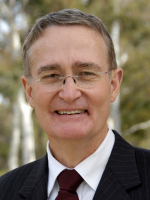 Abstract:
The talk will review power system theory by merging two viewpoints. Firstly and more recently, the network science viewpoint, which exploits the structural features of the power grid (or networks); and secondly, the dynamical systems viewpoint, which emphasises the nonlinear dynamics.
Abstract:
The talk will review power system theory by merging two viewpoints. Firstly and more recently, the network science viewpoint, which exploits the structural features of the power grid (or networks); and secondly, the dynamical systems viewpoint, which emphasises the nonlinear dynamics.
It appears that the whole of the nearly 100-year old subject of power systems can be rewritten in the dynamical networks paradigm to provide new insights. Recent work in this line from engineering and science researchers has given new life to the theoretical basics of power networks, particularly in the areas of stability and distributed control. These contributions including those of the speaker will be presented.
Biography: David J. Hill received the PhD degree in Electrical Engineering from the University of Newcastle, Australia, in 1976. He holds the Chair of Electrical Engineering in the Department of Electrical and Electronic Engineering at the University of Hong Kong. He is also a part-time Professor in the Centre for Future Energy Networks at The University of Sydney, Australia. During 2005-2010, he was an Australian Research Council Federation Fellow at the Australian National University. He has held various positions at the University of Sydney since 1994 including the Chair of Electrical Engineering until 2002 and again during 2010-2013 along with an ARC Professorial Fellowship. He has also held academic and substantial visiting positions at the universities of Melbourne, California (Berkeley), Newcastle (Australia), Lund (Sweden), Munich and in Hong Kong (City and Polytechnic Universities). His general research interests are in control systems, complex networks, power systems and stability analysis. His work is now mainly on control and planning of future energy networks and basic stability and control questions for dynamic networks.
Professor Hill is a Life Fellow of the Institute of Electrical and Electronics Engineers, USA. He is a Fellow of the Society for Industrial and Applied Mathematics, USA, the Australian Academy of Science, the Australian Academy of Technological Sciences and Engineering and the Hong Kong Academy of Engineering Sciences. He is also a Foreign Member of the Royal Swedish Academy of Engineering Sciences.
TOP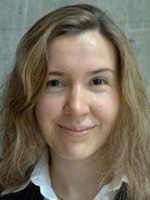 Abstract:
In many social and economic settings, decisions of individuals are affected by the actions of their friends, colleagues, and peers. Examples include adoption of new products and innovations, opinion formation and social learning, public good provision, financial exchanges and international trade. Network games have emerged as a powerful framework to study these settings with particular focus on how the underlying patterns of interactions, governed by a network, affect the economic outcomes. For tractability reasons, much of the work in this area studied games with special structure (e.g., quadratic cost functions, scalar non-negative strategies) or special properties (e.g., games of strategic complements or substitutes). These works relied on disparate techniques for their analysis which then led to different focal network properties for existence and uniqueness of equilibria.
Abstract:
In many social and economic settings, decisions of individuals are affected by the actions of their friends, colleagues, and peers. Examples include adoption of new products and innovations, opinion formation and social learning, public good provision, financial exchanges and international trade. Network games have emerged as a powerful framework to study these settings with particular focus on how the underlying patterns of interactions, governed by a network, affect the economic outcomes. For tractability reasons, much of the work in this area studied games with special structure (e.g., quadratic cost functions, scalar non-negative strategies) or special properties (e.g., games of strategic complements or substitutes). These works relied on disparate techniques for their analysis which then led to different focal network properties for existence and uniqueness of equilibria.
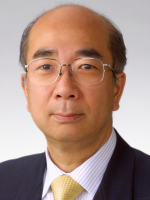 Since the advent of the celebrated sampling theory by Shannon, the notion of band-limited signals have become very popular and prevalent. It shows that band-limited signals can be perfectly reconstructed from their sampled values. This fact led to the common understanding that one has to limit the signal bandwidth below the so-called Nyquist frequency to bring the digital signals into successful processing or control. This talk challenges this band-limiting principle. While the Shannon theory guarantees perfect reconstruction for perfectly band-limited signals, there are many practical situations where the basic band-limiting hypothesis is not met, due to physical or practical constraints on the sampling period. For example, the superresolution in image reconstruction, rejection of high frequency disturbance signals beyond the Nyquist frequency, etc. This requires to optimally reconstructing intersample signals, including high frequency components.
Since the advent of the celebrated sampling theory by Shannon, the notion of band-limited signals have become very popular and prevalent. It shows that band-limited signals can be perfectly reconstructed from their sampled values. This fact led to the common understanding that one has to limit the signal bandwidth below the so-called Nyquist frequency to bring the digital signals into successful processing or control. This talk challenges this band-limiting principle. While the Shannon theory guarantees perfect reconstruction for perfectly band-limited signals, there are many practical situations where the basic band-limiting hypothesis is not met, due to physical or practical constraints on the sampling period. For example, the superresolution in image reconstruction, rejection of high frequency disturbance signals beyond the Nyquist frequency, etc. This requires to optimally reconstructing intersample signals, including high frequency components.
 Abstract:
“Stop-and-go” traffic oscillations require multiple hyperbolic PDEs to capture correctly – as a minimum, separate density and velocity dynamics need to be included, as in the state-of-the-art Aw-Rascle-Zhang model which, unlike the previous `gas dynamics’ imitations of traffic, also includes elements of human behavior (“forward-oriented” attention, collision avoidance, etc.). Instability of the stop-and-go kind arises due to the coupling in the PDEs throughout their domain. While in the far future, with fully automated freeways, control will be possible at each vehicle, allowing the PDEs to be decoupled by feedback, the means of traffic actuation of today are located only at “boundaries,” as in the case of ramp metering at the freeway entrance. Simple collocated static feedback laws do not suffice for stabilizing PDEs that are coupled domain-wide. The domain-wide decoupling with boundary control is possible, however, using the backstepping approach, which also allows estimation of both the states and the unknown parameters of the freeway and the drivers on it, all from sensing only at the ramp. I will illustrate the theoretical/mathematical and methodological ideas for the boundary control of coupled hyperbolic PDEs within the setting of traffic control and other applications.
Abstract:
“Stop-and-go” traffic oscillations require multiple hyperbolic PDEs to capture correctly – as a minimum, separate density and velocity dynamics need to be included, as in the state-of-the-art Aw-Rascle-Zhang model which, unlike the previous `gas dynamics’ imitations of traffic, also includes elements of human behavior (“forward-oriented” attention, collision avoidance, etc.). Instability of the stop-and-go kind arises due to the coupling in the PDEs throughout their domain. While in the far future, with fully automated freeways, control will be possible at each vehicle, allowing the PDEs to be decoupled by feedback, the means of traffic actuation of today are located only at “boundaries,” as in the case of ramp metering at the freeway entrance. Simple collocated static feedback laws do not suffice for stabilizing PDEs that are coupled domain-wide. The domain-wide decoupling with boundary control is possible, however, using the backstepping approach, which also allows estimation of both the states and the unknown parameters of the freeway and the drivers on it, all from sensing only at the ramp. I will illustrate the theoretical/mathematical and methodological ideas for the boundary control of coupled hyperbolic PDEs within the setting of traffic control and other applications.
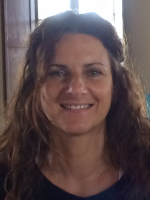 Abstract:
The talk tackles the problem of integrating mechanisms typical of biological evolution with human decision making and dynamics over networks. Starting form the concepts of competition and cooperation in social systems, the effects of heterogeneous and nonlinear interactions among the members of a population are investigated. Standard evolutionary game equations are extended to account for the presence of connection networks, and to study the influence of topology on decision making. Moreover, self-regulating mechanisms, modeling internal processes, such as awareness and learning, are shown to induce inertial forces driving individuals towards more cooperative states. Interestingly, self-regulation produces different effects in weakly and strongly connected individuals, thus allowing to point out how meaningful are networks in human societies. This is particularly evident when analysing emergence of cooperation, for which it is possible to identify selfish and altruistic dynamic traits. Theoretical results on the stability of steady states at global and local level, including consensus over the network, are presented. Additional conclusions arising from numerical experiments are also discussed.
Abstract:
The talk tackles the problem of integrating mechanisms typical of biological evolution with human decision making and dynamics over networks. Starting form the concepts of competition and cooperation in social systems, the effects of heterogeneous and nonlinear interactions among the members of a population are investigated. Standard evolutionary game equations are extended to account for the presence of connection networks, and to study the influence of topology on decision making. Moreover, self-regulating mechanisms, modeling internal processes, such as awareness and learning, are shown to induce inertial forces driving individuals towards more cooperative states. Interestingly, self-regulation produces different effects in weakly and strongly connected individuals, thus allowing to point out how meaningful are networks in human societies. This is particularly evident when analysing emergence of cooperation, for which it is possible to identify selfish and altruistic dynamic traits. Theoretical results on the stability of steady states at global and local level, including consensus over the network, are presented. Additional conclusions arising from numerical experiments are also discussed.
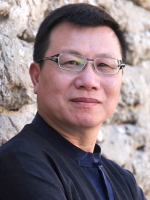 Abstract:
Cooperative control of mobile sensor networks has attracted much research interest in recent years due to its potential application such as search and environmental monitoring. This talk will focus on coverage control of mobile sensor networks on a one-dimensional space: a network of mobile sensors should distribute themselves over a one-dimensional space with the object to minimize the time cost for them to arrive at any point in the space. We first introduce the coverage control problem of networked mobile sensors on a line with non-uniform roughness by considering the different actuation constraints of the sensors. Then, the coverage control problem of a circle by a network of mobile sensors with different velocity constraints affected by measurement errors will be presented. Finally, directions for future research on coverage control will be discussed.
Abstract:
Cooperative control of mobile sensor networks has attracted much research interest in recent years due to its potential application such as search and environmental monitoring. This talk will focus on coverage control of mobile sensor networks on a one-dimensional space: a network of mobile sensors should distribute themselves over a one-dimensional space with the object to minimize the time cost for them to arrive at any point in the space. We first introduce the coverage control problem of networked mobile sensors on a line with non-uniform roughness by considering the different actuation constraints of the sensors. Then, the coverage control problem of a circle by a network of mobile sensors with different velocity constraints affected by measurement errors will be presented. Finally, directions for future research on coverage control will be discussed.
 Abstract:
Many mechanical systems exhibit continuous symmetries that lead to dynamic models for those systems where the state space carries the structure of a homogeneous space of the symmetry Lie group. These models are prevalent in mobile robotics where such symmetries ultimately derive from the physical fact that the laws of rigid body motion are invariant to a change of reference frame.
Abstract:
Many mechanical systems exhibit continuous symmetries that lead to dynamic models for those systems where the state space carries the structure of a homogeneous space of the symmetry Lie group. These models are prevalent in mobile robotics where such symmetries ultimately derive from the physical fact that the laws of rigid body motion are invariant to a change of reference frame.
 Abstract:
In this talk, we discuss distributed optimization problems with constraints over multi-agent networks. After a brief overview, we focus on two distributed computation problems for the optimal solutions to resource allocations and to matrix equations. Distributed design for resource allocation is an important problem, which can be viewed as a constrained optimization with equality or inequality constraints. Its distributed design is quite challenging because it becomes a coupled constraint between agents. Also, we actively employ the techniques of distributed convex optimization to solve the distributed computation problem of a well-known matrix equation in several standard cases. We propose distributed gradient-based algorithms to solve them with convergence analysis.
Abstract:
In this talk, we discuss distributed optimization problems with constraints over multi-agent networks. After a brief overview, we focus on two distributed computation problems for the optimal solutions to resource allocations and to matrix equations. Distributed design for resource allocation is an important problem, which can be viewed as a constrained optimization with equality or inequality constraints. Its distributed design is quite challenging because it becomes a coupled constraint between agents. Also, we actively employ the techniques of distributed convex optimization to solve the distributed computation problem of a well-known matrix equation in several standard cases. We propose distributed gradient-based algorithms to solve them with convergence analysis.
 Abstract:
Whether humans in a community, fish in a school, or neurons in a brain, simple decisions or actions by interacting individuals can lead to complex and unpredictable outcomes in a population. Research on these systems at a broader scale, perhaps subject to simpli cation of the agent-level dynamics, can help to characterize critical properties such as convergence, stability, controllability, robustness, and performance. Correspondingly, an extensive literature has emerged in the field of evolutionary games on networks, particularly regarding the question of how cooperation can evolve and persist under various conditions and in various population structures. In this talk, I will provide a brief survey of some recent results in the analysis and control of evolutionary dynamics. In particular, I will focus on two classes of decision-making strategies, namely imitation and best-response, and show how they might lead to dramatically different collective dynamics. I will also illustrate how to apply classical tools and new ideas to control such complex dynamics.
Abstract:
Whether humans in a community, fish in a school, or neurons in a brain, simple decisions or actions by interacting individuals can lead to complex and unpredictable outcomes in a population. Research on these systems at a broader scale, perhaps subject to simpli cation of the agent-level dynamics, can help to characterize critical properties such as convergence, stability, controllability, robustness, and performance. Correspondingly, an extensive literature has emerged in the field of evolutionary games on networks, particularly regarding the question of how cooperation can evolve and persist under various conditions and in various population structures. In this talk, I will provide a brief survey of some recent results in the analysis and control of evolutionary dynamics. In particular, I will focus on two classes of decision-making strategies, namely imitation and best-response, and show how they might lead to dramatically different collective dynamics. I will also illustrate how to apply classical tools and new ideas to control such complex dynamics.
 Abstract:
Quantum error correction is used in quantum computing to protect quantum information from errors due to decoherence and other quantum noise. Quantum error correction is essential if one has to build a quantum device to store, transmit, or process quantum information. In this talk, we will describe the mathematical framework and some recent results and problems on quantum error correction using operator theory approach.
Abstract:
Quantum error correction is used in quantum computing to protect quantum information from errors due to decoherence and other quantum noise. Quantum error correction is essential if one has to build a quantum device to store, transmit, or process quantum information. In this talk, we will describe the mathematical framework and some recent results and problems on quantum error correction using operator theory approach.
 Abstract:
Equilibrium modeling is common in a variety of fields such as game theory, transportation science, and cell metabolism. The inputs to these models, however, are often difficult to estimate, while their outputs, i.e., the equilibria they are meant to describe, are often directly observable. By combining ideas from inverse optimization with the theory of variational inequalities, I will present an efficient, data-driven technique for estimating the parameters of these models from observed equilibria. Our framework allows for both parametric and non-parametric estimation and provides probabilistic guarantees on the quality of the estimated quantities.
Abstract:
Equilibrium modeling is common in a variety of fields such as game theory, transportation science, and cell metabolism. The inputs to these models, however, are often difficult to estimate, while their outputs, i.e., the equilibria they are meant to describe, are often directly observable. By combining ideas from inverse optimization with the theory of variational inequalities, I will present an efficient, data-driven technique for estimating the parameters of these models from observed equilibria. Our framework allows for both parametric and non-parametric estimation and provides probabilistic guarantees on the quality of the estimated quantities.
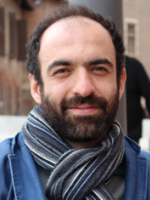 Abstract:
The field of quantum information processing (quantum computing and quantum communication) has seen a tremendous progress during the past few decades. Many proof-of-principle experiments on small-scale (few physical degrees of freedom) quantum systems have been realized within various physical frameworks such as NMR (Nuclear Magnetic Resonance), trapped ions, cavity quantum electrodynamics, linear optics and superconducting circuits. Despite all these achievements, and in order to make this a useful technology, a major scaling step is required towards many-qubit (quantum bit) protocols. The main obstacle here is the destruction of quantum coherence (called decoherence) due to the interaction of the quantum system with its environment. The next critical stage in the development of quantum information processing is most certainly the active quantum error correction (QEC). Through this stage, one designs, possibly using many physical qubits, an encoded logical qubit which is protected against major decoherence channels and hence admits a significantly longer effective coherence time than a physical qubit. While a theory of quantum error correction has existed and developed since mid 1990s, the first experiments are being currently investigated in the physics labs around the world. A central challenge in all these experiments is related to real-time feedback control required for error correction. After reviewing some of the theory behind this field, I will explain how this central challenge can be attacked through passive control and dissipativity. I will also overview a series of recent experimental developments in this area.
Abstract:
The field of quantum information processing (quantum computing and quantum communication) has seen a tremendous progress during the past few decades. Many proof-of-principle experiments on small-scale (few physical degrees of freedom) quantum systems have been realized within various physical frameworks such as NMR (Nuclear Magnetic Resonance), trapped ions, cavity quantum electrodynamics, linear optics and superconducting circuits. Despite all these achievements, and in order to make this a useful technology, a major scaling step is required towards many-qubit (quantum bit) protocols. The main obstacle here is the destruction of quantum coherence (called decoherence) due to the interaction of the quantum system with its environment. The next critical stage in the development of quantum information processing is most certainly the active quantum error correction (QEC). Through this stage, one designs, possibly using many physical qubits, an encoded logical qubit which is protected against major decoherence channels and hence admits a significantly longer effective coherence time than a physical qubit. While a theory of quantum error correction has existed and developed since mid 1990s, the first experiments are being currently investigated in the physics labs around the world. A central challenge in all these experiments is related to real-time feedback control required for error correction. After reviewing some of the theory behind this field, I will explain how this central challenge can be attacked through passive control and dissipativity. I will also overview a series of recent experimental developments in this area.